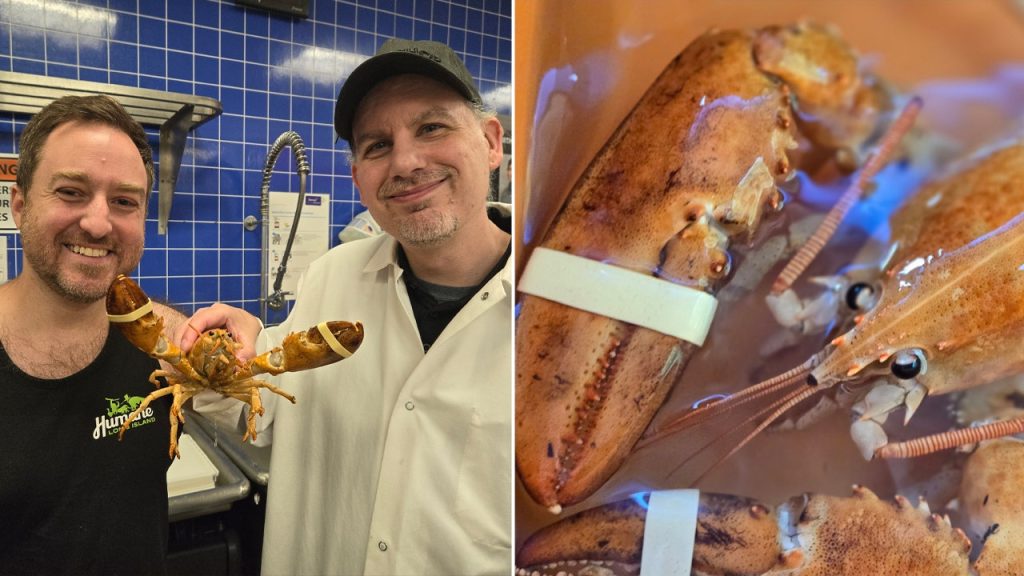An extremely rare orange lobster was rescued from a supermarket in Southampton, New York and returned to the sea after being discovered in the seafood section by a local animal shelter. The lobster, affectionately named Clementine, had been shipped with traditional brown lobsters ahead of July 4th. The supermarket had initially hoped to spare it from being cooked, but when their efforts were unsuccessful, the lobster was donated to Humane Long Island for rehabilitation and eventual release back into the wild. The animal advocacy group consulted with a veterinarian and prepared a cold saltwater tank to help Clementine readjust to the ocean before releasing it into Long Island Sound.
Executive director of Humane Long Island, John Di Leonardo, emphasized the importance of respecting lobsters as sensitive and intelligent animals who can experience pain and suffering when removed from their natural habitat. He encouraged people to celebrate Clementine’s successful journey back to the wild by not eating lobsters, as boiling them alive is inhumane. This isn’t the first time a rare orange lobster has been at risk of being cooked – another orange lobster named Crush was delivered to a Red Lobster in Denver, Colorado, and a second one was sent to a North Carolina location. The rarity of orange lobsters has sparked attention around the world, with some countries even making it illegal to boil lobsters alive.
Humane Long Island’s efforts to rescue and return Clementine back to the ocean highlight the importance of treating all animals with compassion and respect. As lobsters are known to travel long distances each year and experience pain when taken from their ocean homes, the organization urges people to reconsider eating or confining lobsters. By raising awareness about the treatment of lobsters and celebrating Clementine’s successful release, Humane Long Island hopes to inspire more compassionate actions towards animals. The organization’s dedication to helping animals in need, such as Clementine, showcases the impact of advocacy groups in protecting wildlife and promoting animal welfare.
The rescue and release of Clementine serve as a reminder of the challenges faced by rare orange lobsters who are often mistaken for traditional brown lobsters at seafood markets. With the recent influx of orange lobsters being delivered to various Red Lobster locations, it’s clear that these rare crustaceans continue to face threats of being cooked. By shedding light on these instances and advocating for the protection of lobsters, organizations like Humane Long Island are working to ensure that rare animals like Clementine are given a second chance at life. Through education and advocacy, the plight of rare lobsters is being brought to the forefront, prompting discussions about animal welfare and the ethical treatment of all living creatures.
The journey of Clementine, the rare orange lobster, from a supermarket in Southampton to the waters of Long Island Sound, exemplifies the dedication of animal advocacy groups in protecting and rescuing wildlife. With organizations like Humane Long Island leading efforts to safeguard animals and promote a more compassionate approach to animal welfare, rare creatures like Clementine are given the opportunity to return to their natural habitat. By working together to raise awareness about the treatment of animals and advocate for their rights, communities can make a difference in protecting vulnerable species and ensuring a more humane world for all living beings. Clementine’s story serves as a beacon of hope and inspiration for the conservation of rare orange lobsters and the importance of respecting all creatures on Earth.


